Slack says automation can save every employee a month of work per year
Research from Slack found that workers believe generative AI tools will revolutionize productivity


Staff at companies adopting generative AI tools are 90% more likely to report higher levels of productivity, according to new research.
The State of Work report from Slack, which polled more than 18,000 desk workers globally, found that staff are increasingly receptive to generative AI tools being adopted in their workplace.
More than three-quarters (77%) of respondents said that being able to automate routine tasks, such as expense report approvals, would drastically improve their productivity.
The study revealed that those who currently use automation in the workplace estimate that they save an average of 3.6 hours per week.
This equates to around a month each year saved due to improved productivity due to automation, the report noted.
Brent Hyder, president and chief people officer at Salesforce said the study highlights the growing appetite among staff for the use of generative AI tools and automation of daily tasks.
“The workplace is continuously evolving, and never more so than in the past few years. Companies must rethink the employee experience to increase productivity today,” he said.
Sign up today and you will receive a free copy of our Future Focus 2025 report - the leading guidance on AI, cybersecurity and other IT challenges as per 700+ senior executives
RELATED RESOURCE
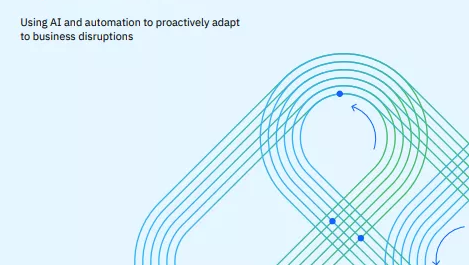
How to help IT manage itself with autonomous operations
Using AI and automation to proactively adapt to business disruptions
“Organizations that embrace new ways of working, such as flexibility, automation and AI, and collaboration tools will help their employees - and ultimately their customers - find greater success.”
The launch of the report coincides with Slack’s announcement that it plans to implement a new “conversational AI experience” in its workplace productivity suite to support staff.
Slack GPT will provide users with native AI features, including the ability to use generative AI app integrations as well as the chance to access secure customer data insights from the Customer 360 and Data Cloud functions.
“Working with Einstein GPT, Slack GPT will unlock the power of CRM and conversational data to help everyone in the organization be more productive,” the company said in an announcement this week.
Companies not keeping pace with AI demand
While employees appear increasingly receptive to generative AI, Slack’s report suggested that some companies are failing to keep pace with the demand for such tools.
Nearly two-thirds (60%) of respondents said their company has not incorporated any AI tools to support productivity while just under half (43%) said their team has “not created automations to make their work processes easier or more efficient”.
“AI and automation are on everyone’s minds in 2023. Yet it is crystal clear from this research that most organizations are barely scratching the surface of their productivity value in daily work,” said Rob Seaman, senior vice president of enterprise product at Slack.
“Automation can save employees up to an entire working month per year, freeing up their time for more meaningful, impactful work. There’s a huge opportunity for organizations to help employees work smarter, more efficiently, and more pleasantly.”
Business appetite for AI is growing
The publication of Slack’s report follows recent insight from Gartner which suggested business appetite for generative AI tools is growing as companies look to capitalize on recent developments in the space.
Research from the consultancy firm revealed that 45% of business leaders have increased AI investments on the back of publicity around ChatGPT and its potential benefits for organizations.
Nearly three-quarters (70%) of executives also said their organization is currently in “investigation and exploration mode” with regard to the implementation of generative AI.
Just under one-fifth (19%) also said they are in pilot or production mode and plan to integrate generative AI tools in organizational processes.
Frances Karamouzis, distinguished VP analyst at Gartner, said the research highlights the growing interest in the potential benefits that generative AI could deliver for businesses in the long term.
“The generative AI frenzy shows no signs of abating,” she said.
“Organizations are scrambling to determine how much cash to pour into generative AI solutions, which products are worth the investment, when to get started, and how to mitigate the risks that come with this emerging technology.”
ITPro Network bullish on generative AI
Earlier this week, members of the ITPro Network revealed that their organizations are also currently integrating or exploring the use of generative AI tools in their business.
Mark Evans, IT director at Tillia Homes, told ITPro that he has been using ChatGPT extensively in daily operations and has harnessed the powerful chatbot to generate PowerShell scripts and finetune Excel formulae.
Evans noted that ChatGPT has enabled him to “work smarter, not harder”.
David Cartwright, CISO at Santander International, also sung ChatGPT’s praises when speaking to ITPro, revealing that the tool has proved so useful that he signed up to OpenAI’s ChatGPT Plus subscription service.
Cartwright has been using ChatGPT to support a variety of processes, such as writing job descriptions for roles that Santander is seeking to fill.

Ross Kelly is ITPro's News & Analysis Editor, responsible for leading the brand's news output and in-depth reporting on the latest stories from across the business technology landscape. Ross was previously a Staff Writer, during which time he developed a keen interest in cyber security, business leadership, and emerging technologies.
He graduated from Edinburgh Napier University in 2016 with a BA (Hons) in Journalism, and joined ITPro in 2022 after four years working in technology conference research.
For news pitches, you can contact Ross at ross.kelly@futurenet.com, or on Twitter and LinkedIn.
-
 Everything we know so far about the Nike data breach
Everything we know so far about the Nike data breachNews Hackers behind the WorldLeaks ransomware group claim to have accessed sensitive corporate data
-
 Morgan Stanley research warns AI is having a huge impact on jobs
Morgan Stanley research warns AI is having a huge impact on jobsNews Analysis of five sectors highlights an "early warning sign" of AI’s impact on jobs
-
 Workers are wasting half a day each week fixing AI ‘workslop’
Workers are wasting half a day each week fixing AI ‘workslop’News Better staff training and understanding of the technology is needed to cut down on AI workslop
-
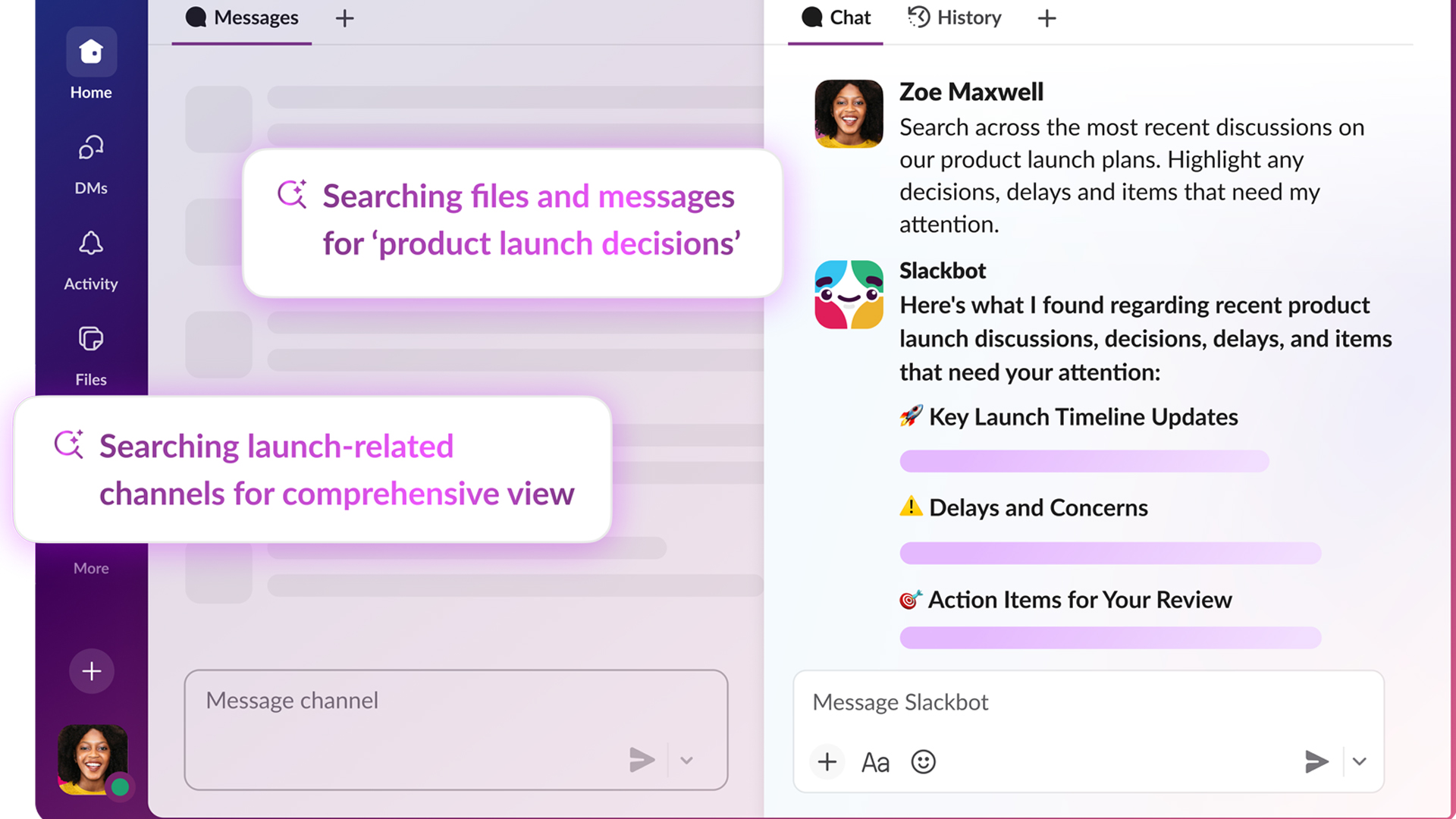 The AI-enabled Slackbot is now generally available – Salesforce says it could save more than a day’s work per week
The AI-enabled Slackbot is now generally available – Salesforce says it could save more than a day’s work per weekNews With an entirely overhauled model behind the chatbot, users can summarize channels and ask for highly personalized information
-
 Everything you need to know about Claude Cowork, including features, pricing, and how to access the new productivity tool
Everything you need to know about Claude Cowork, including features, pricing, and how to access the new productivity toolNews Users can give Claude Cowork access to specific folders on their computer, allowing the bot to autonomously sort and organize files in the background while you're working away.
-
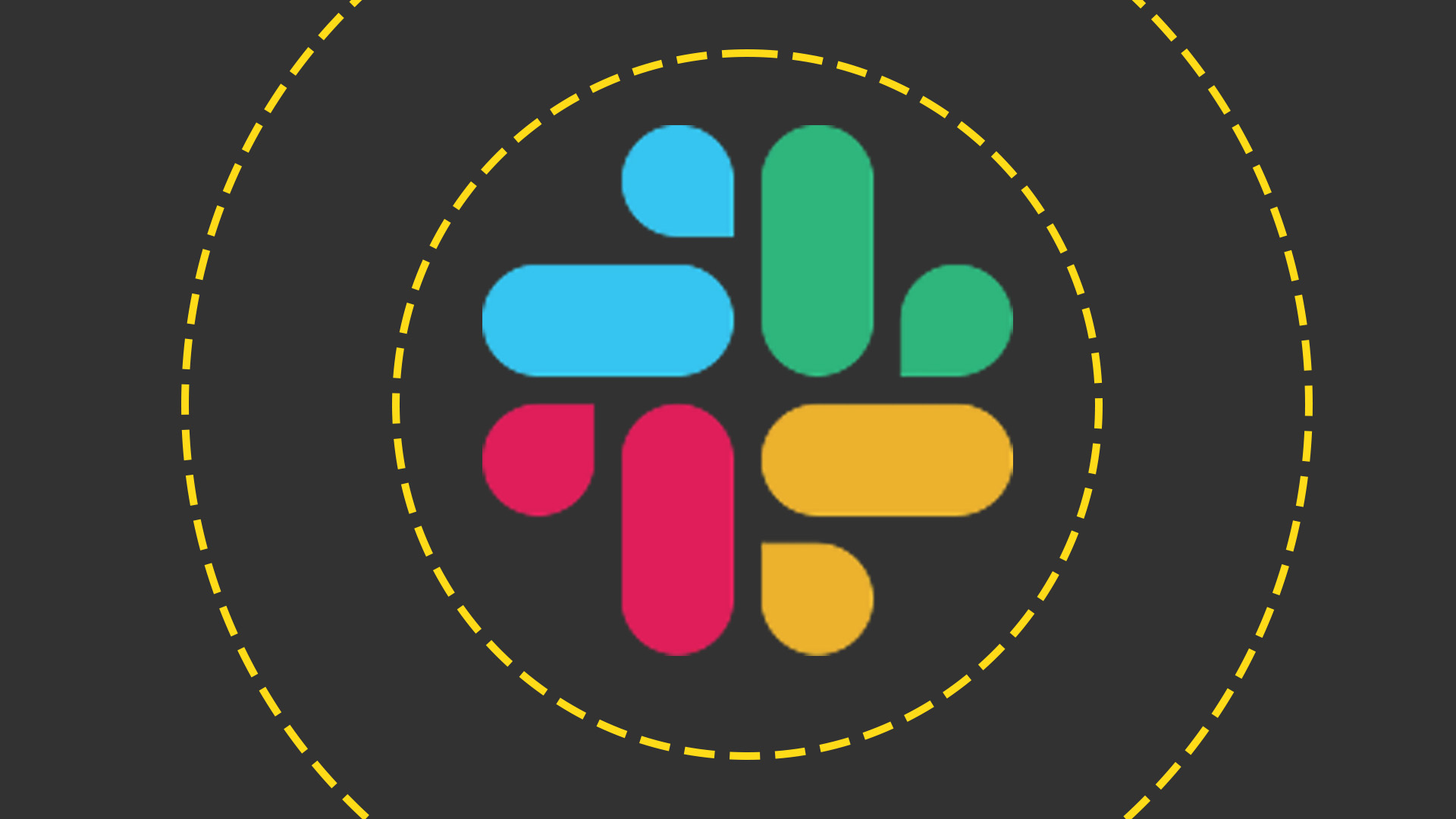 Get used to working with AI teammates in Slack
Get used to working with AI teammates in SlackNews The workplace collaboration app is all-in on AI agents
-
 Nearly half of workers think using AI makes them look lazy and incompetent
Nearly half of workers think using AI makes them look lazy and incompetentNews AI adoption is slowing among desk workers, driven by uncertainty around its permissibility in the workplace
-
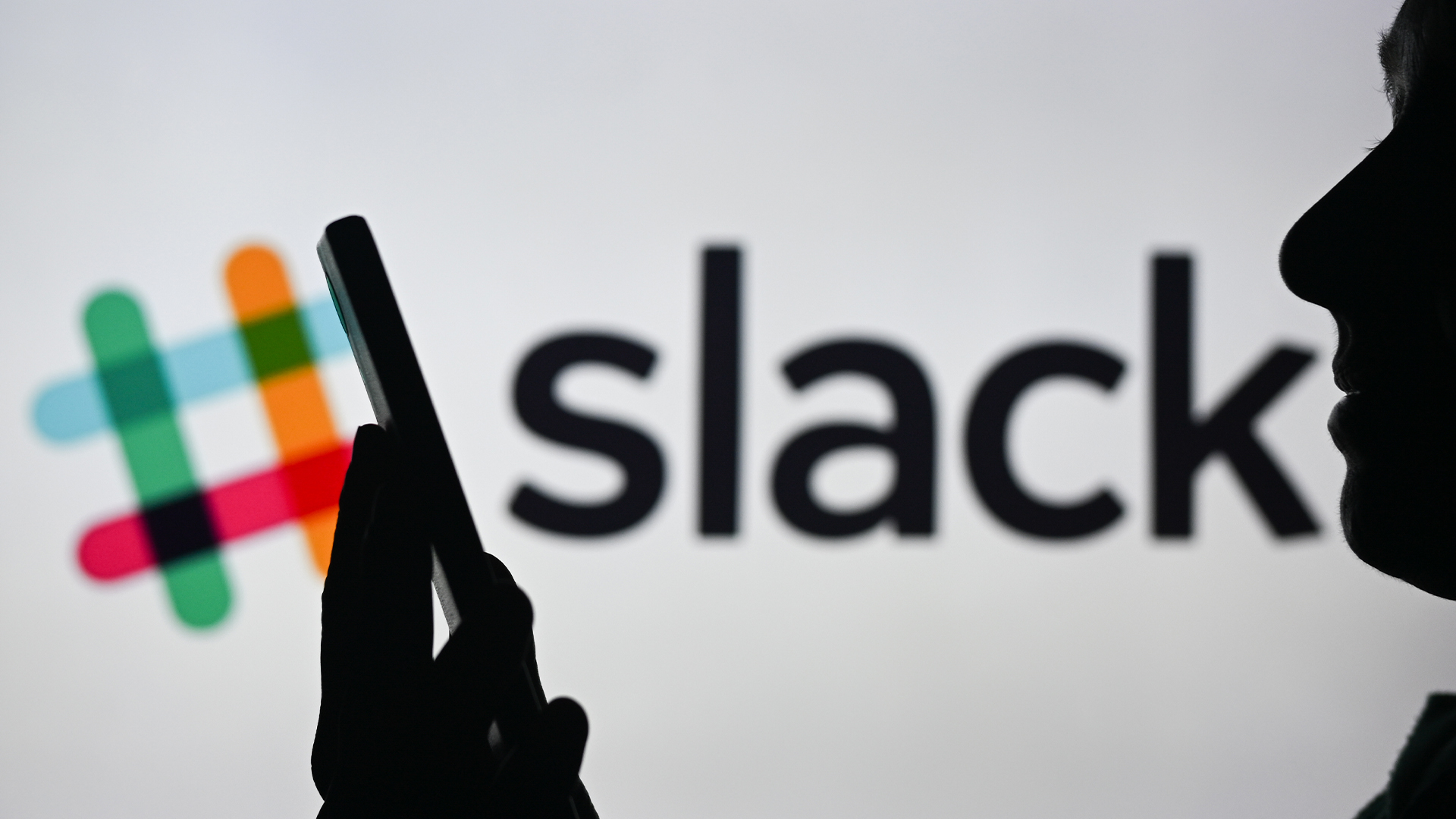 “We've had a lot of education over the last few weeks”: Slack has learned its lesson after AI training policy fiasco
“We've had a lot of education over the last few weeks”: Slack has learned its lesson after AI training policy fiascoNews Slack has been hard at work engaging with customers to clarify its AI training practices following concerns user info was used to train its models
-
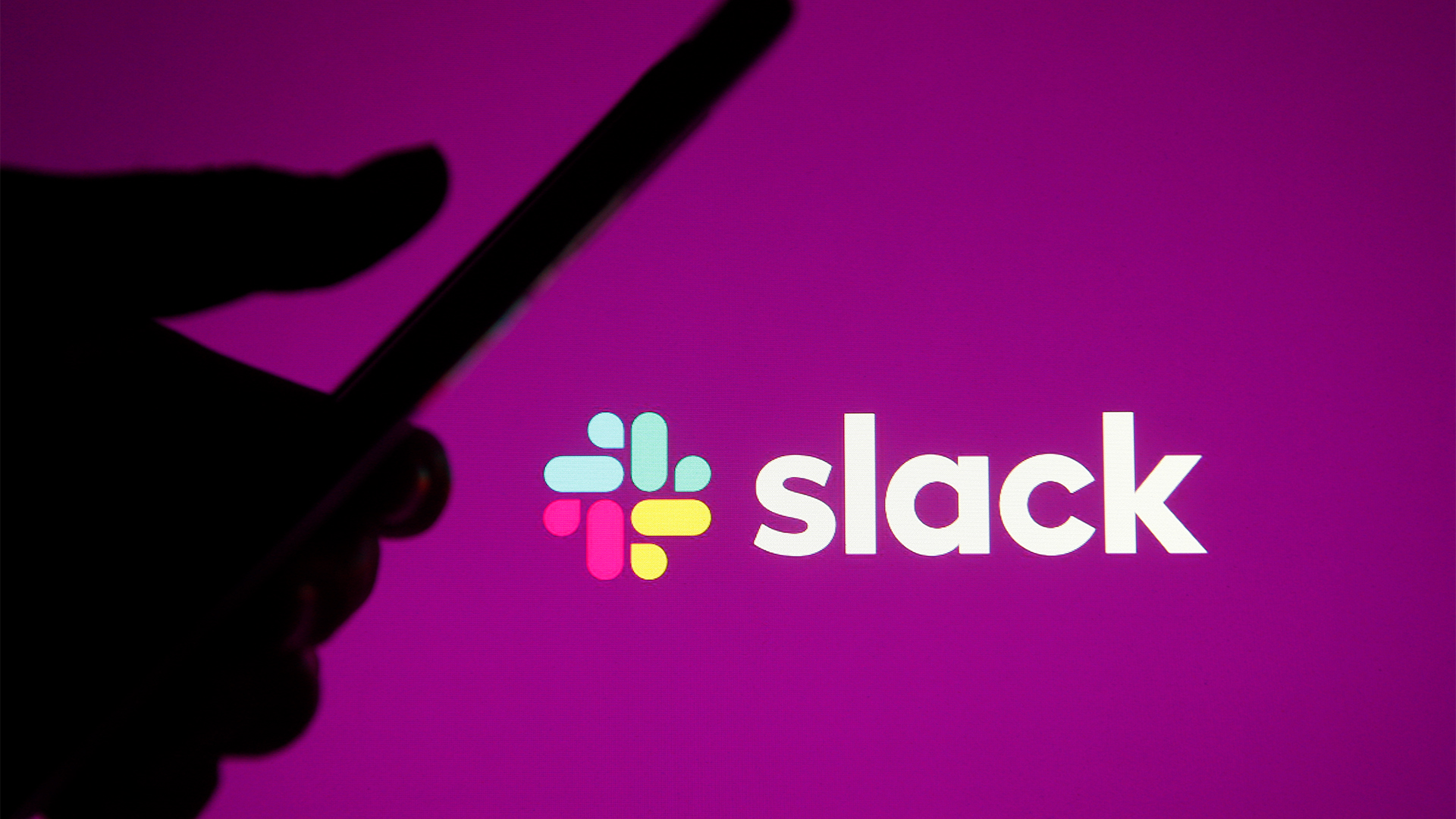 Slack refutes claims that customer data is used to train AI models
Slack refutes claims that customer data is used to train AI modelsNews Slack said its ML models are trained on de-identified, aggregate data and that its models do not access message content
-
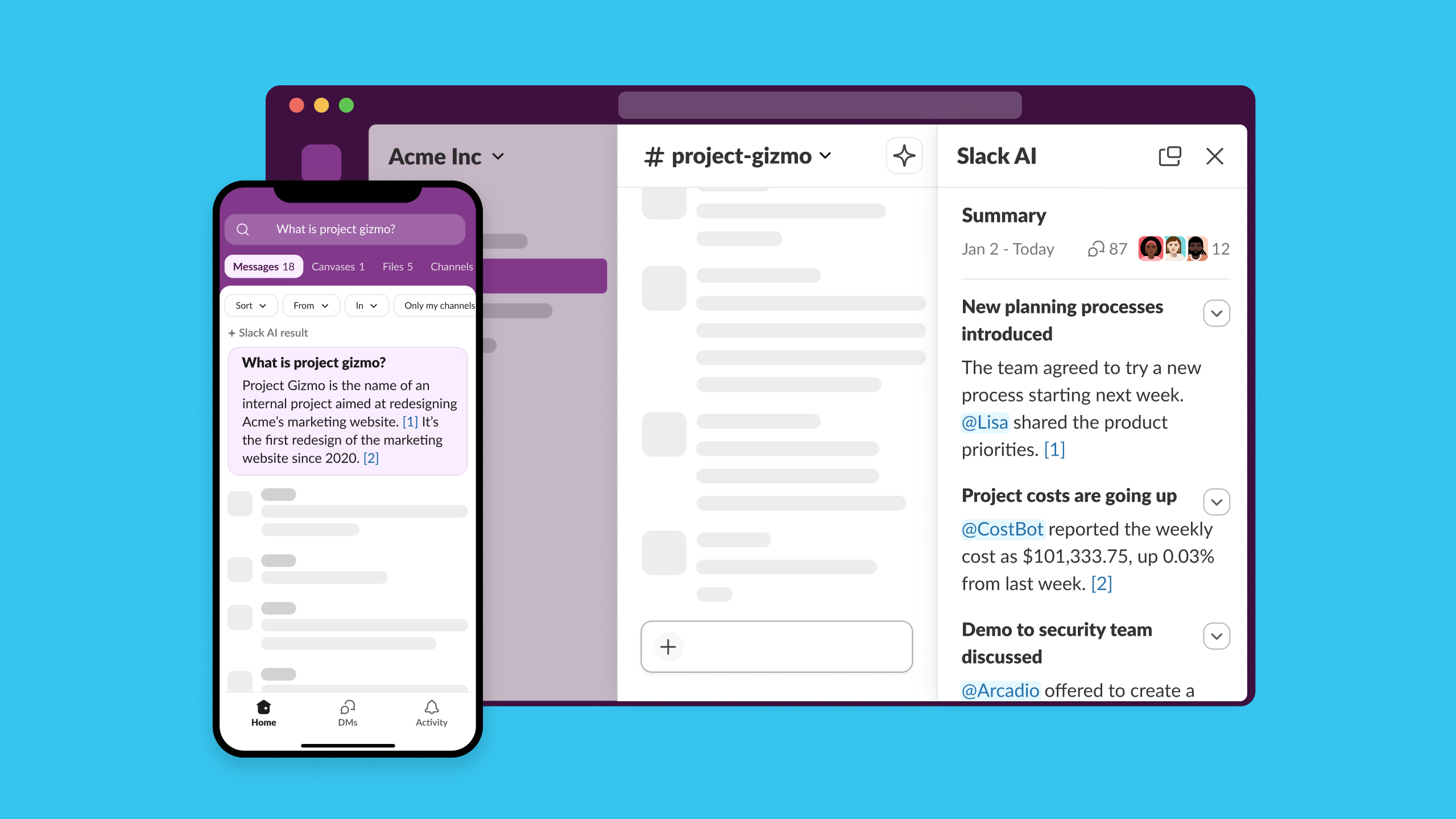 Slack AI: Everything you need to know about the platform's new features
Slack AI: Everything you need to know about the platform's new featuresNews New Slack AI features look to supercharge user productivity and collaboration as the firm targets intense competition with industry competitors